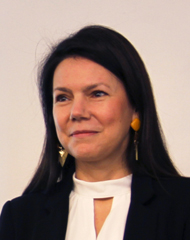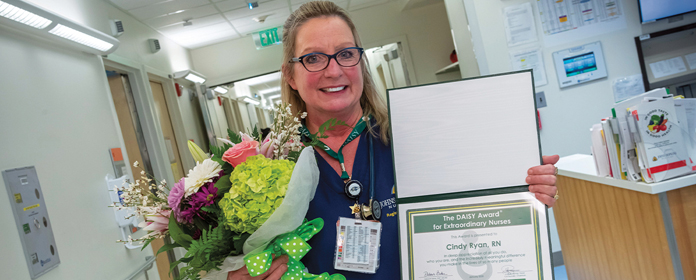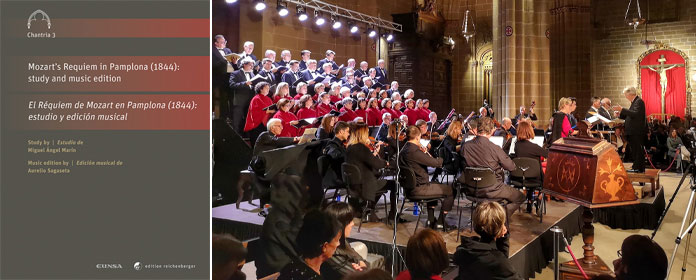Expressions of gratitude from patients and family members to palliative care professionals generate positive feelings and protect from burn-out
A study of the ATLANTES Program of Institute for Culture and Society has analyzed gratitude in palliative care services throughout Spain.

PHOTO: Natalia Rouzaut
Expressions of gratitude from patients and family members to professionals are part of the reality of palliative care, generate positive feelings and provide support in times of professional difficulty. These are some of the conclusions of the study carried out by the ATLANTES Program of the University of Navarra, published in the first journal of the University of Navarra. Institute for Culture and Society of the University of Navarra, published in the first quartile journal BMJ Suportive & Palliative Care.
With this research it was found that 100% of the palliative care professionals participating in the study had ever received thanks for their work . To this end, they sent an online questionnaire to the representatives of each palliative service registered in Spain. They obtained 186 responses (68%) where 80% of the respondents stated that they receive expressions of gratitude very frequently. In fact, no professional responded that they did not receive them 'almost never'.
The study sought to "understand more deeply what it means for these professionals to receive gratitude", indicated María Aparicio, lead author and collaborator of ATLANTES. Through the survey, they found that 94% stated that expressions of gratitude increased their satisfaction, 91% felt more motivated, 75% felt more proud of their work and 68% said they felt greater professional fulfillment thanks to them.
Gratitude as a fireproof suit in the face of adversityAccording to the study, agreement , gratitude goes further and also provides support in times of professional difficulty for 90% of those surveyed. Eighty-four percent stated that it improves mental state, 78% considered it a stimulus to continue working and 72% said it prevents burn-out. One of the participants even considered gratitude as a fireproof suit in difficult situations.
The expert has explained the importance of expressions of gratitude with an experience staff. In August 2018 she started working at St. Christopher's care center (UK) with the double challenge of being in a responsible position and working in English. The first day she had to work alone she took the patient his medication, provided the necessary care, supported the family and talked to him about what the last days might be like and the importance of being calm and pain-free. "These are things that we know need to be said and that we repeat on a daily basis, but each family is hearing them for the first time," she said.
At Christmas, that family gave him a postcard saying how important he had been to them and that he would never forget the words on that visit. "At a time when you're wondering if you're saying it right in English, if what you're saying is the right thing and they're reinforcing it with thanks, it had an impact on me that financial aid kept me going," she has admitted. To this day, Aparicio has the postcard on his desk to remind him of the way forward.
"There are things that your salary doesn't pay for, and having a patient or family thank you with your name is a plus that you don't get at the end of the month," he said.
Letters, postcards, words of thanks and even food are the most common tokens of gratitude received by Spanish palliative care professionals. However, the researcher warned that gratitude must be received in a genuine way. If gratitude is expected, it loses its positive effect and, moreover, if it is expected but not received, it generates frustration.
This publication is part of the ATLANTES Program's "Intangible Values" line of research . It seeks to identify and evaluate those values which are not visible but which form part of palliative care. As Aparicio concluded, "in an environment which society considers harsh and which is associated with death and suffering, there is also something positive, gratitude, and this must be demonstrated and published".





